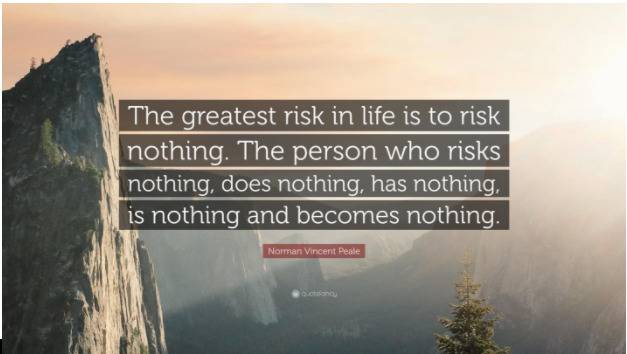How much risk are you comfortable with when it comes to your investments? If this is a question you’ve never contemplated before (or if you have never come to a satisfying conclusion), now is the time to identify what we in the industry call ‘risk tolerance’. If you aren’t familiar with your risk tolerance and what influences it, you’ll have a more difficult time identifying goals and strategies with your financial advisor and may find yourself frustrated or disappointed with how your portfolio performs. Here is how to identify your personal risk tolerance so you can appropriately alter your investment strategy.
Work with a Good Financial Advisor
When you work with a financial advisor who truly values you and acts as a fiduciary, you will know that your risk tolerance will not only be identified, but that it will also be taken into consideration when any advice is given or suggestions are made. If your advisor has never talked to you about your risk tolerance, it might be time to dump him or her. Yes, that’s how important it is. When you work with an advisor who has your best interests at heart, he or she will go over the following considerations with you to determine your individual tolerance.
What to Take into Consideration
Your age Age-based risk tolerance is the term often given to basing risk tolerance on age. It’s a valuable aspect as you will likely be more comfortable with risk when you’re young and know that you can endure several market corrections throughout your lifetime without negative consequences. However, it’s only a piece of the larger picture and should never be the sole factor when identifying your tolerance.
Your personality If you’re not very familiar with your personality type, it will be much more difficult for you and your advisor to identify your risk tolerance. Your personality dictates much of your comfort with risk both in your investments and in other areas of your life. When you become aware of how your personality affects your investing behavior, you can make tweaks and adjustments much more easily because you’ll be aware of where your discomfort comes from and how to address it.
Your retirement goals Everyone has different retirement goals, and it’s vital to determine yours as early as possible. While some may shoot for the magical number of $1 million dollars in the bank to live off of in retirement, others may need less or much more. If you have not gone over your retirement goals and what it will take to fund them with your advisor, you definitely need to look for one who is as focused on your goals as you are.
Your current financial situation Your tolerance for risk is going to be much different if you already have a million dollars in the bank versus if you struggle to make ends meet each month. You and your advisor should go over your current net worth as well as how much you save and spend each month. You should also go over how this is likely to change in the near and more distant future and how that will affect your overall strategy.
Once you and your advisor have identified your risk tolerance and whether it’s appropriate or not for your overall retirement goals, you can work together to develop a strategy that is comfortable yet aggressive enough to achieve those goals. Remember, your advisor should never tell you what your risk tolerance is or should be. Instead, he or she should work with you to properly identify it and what’s behind it and make changes to your strategy in a collaborative manner. If you have questions about identifying your risk tolerance or if you believe you need a new advisor, please reach out.
 Patrick Tucker, the owner of True Measure Wealth Management, has over 20 years experience in the industry and has spent the last 15 years learning the ins and outs of the fee-only advisory business. He focuses on client behaviors and what ‘wealth’ means for each individual client to provide caregiving plans that lead to a mindful fulfillment of financial goals. A lifelong learner, Patrick uses his continued knowledge to become a valued partner for his clients and help them explore the wisdom of true wealth.
Patrick Tucker, the owner of True Measure Wealth Management, has over 20 years experience in the industry and has spent the last 15 years learning the ins and outs of the fee-only advisory business. He focuses on client behaviors and what ‘wealth’ means for each individual client to provide caregiving plans that lead to a mindful fulfillment of financial goals. A lifelong learner, Patrick uses his continued knowledge to become a valued partner for his clients and help them explore the wisdom of true wealth.

